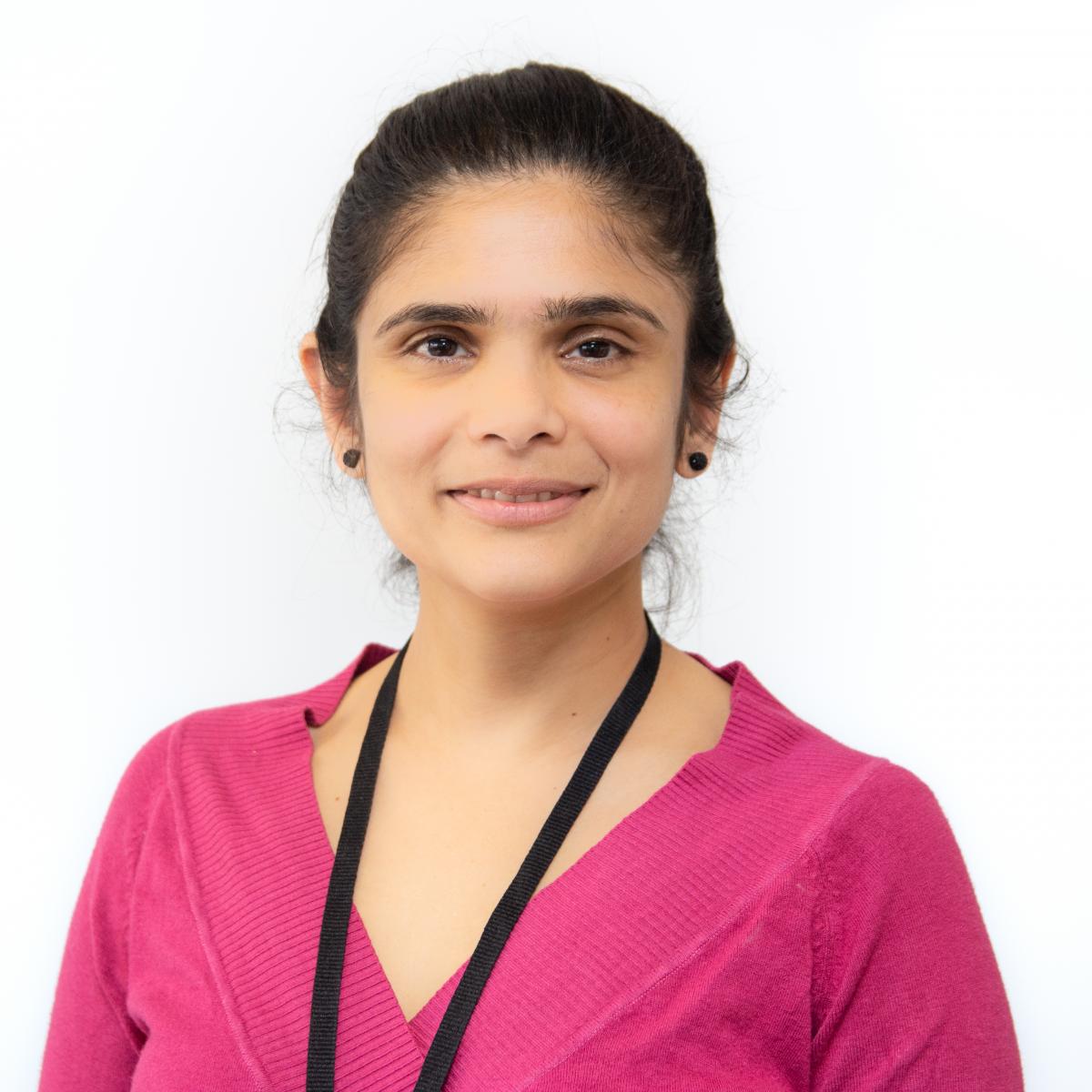In this interview, we talked to Shireen Ismail, Course Leader for the Postgraduate Certificate in the Integrated Care of Older Adults at the UCO, about osteopathy and older adult care.

Tell us a little about your career to date and what attracted you to the profession?
I graduated in 1997 from the British College of Osteopathic Medicine (BCOM) as a qualified osteopath and naturopath. I subsequently studied pain relief acupuncture in Sri Lanka, followed by an MSc at BCOM. Having practised in India, Essex, Hampshire and London, I have treated a broad range of patients due to the large geographical variability as well as differing community settings. Recently, I’ve been volunteering at West Hampstead Women’s Centre in London to promote musculoskeletal health amongst disadvantaged and minority women. I am also busy managing a private practice in north London.
I always enjoyed learning and hoped to transfer this quality to future osteopaths. My particular educational interests are anatomy, biomechanics, clinical reasoning and management of the elderly. I have been involved in creating the first accredited postgraduate specialism in the management of older adults within osteopathic education – a part-time postgraduate course that I lead on and teach at the UCO.
I continue to educate myself by attending numerous conferences, shadowing within the NHS and recently begun a postgraduate certificate in academic and clinical education. I am also one of the reviewers of the Journal of Bodyworks and Movement Therapy.
Can you tell us a bit more about your postgraduate course in older adult care?
The course focuses on manual treatment skills relevant to this particular patient group. It questions, appraises and develops your personal professional beliefs, whilst critically appraising the plausibility of contemporary and established models of geriatric practice within a multi-professional context. A thorough understanding of normal ageing is complemented by typical conditions affecting geriatric patients.
The overarching principle of this course is collaborative, multi-professional input in the management of frail, complex cases that challenge students to widen their horizons and capabilities. Educators include national and international speakers and range from geriatric consultants from Guy’s and St Thomas’ Hospital, occupational therapist, nutritionist, specialist physiotherapists, experienced osteopaths and specialist nurses.
Throughout the course, an emphasis is on developing your safeguarding awareness and management strategies, and identifying areas of practice weakness through risk assessment in order to effectively manage and mitigate these and plan your future CPD opportunities. Teaching and learning is structured around 8 contact days and many more hours of online learning. This form of blended learning is typical of high-quality postgraduate education. The contact days may be structured as seminars, tutorials, student presentation or practical workshops.
You can sample the flavour of our course at the Palliative Care for Manual Therapists Conference on 18 May 2019. This multidisciplinary approach to care typifies the style and emphasis of the course.
Why is older adult care so important?
There is a growing need for expert practitioners to work with older people. The population of the UK is getting older with 18% over 65 and 2.4% over 85 (Office for National Statistics 2017). The number of older people over 65 is projected to rise by 40% by 2030. By 2040, one in four people will be over 65, with 3.4 million people over 85 (Age UK 2018). In 2014 around 10 per cent of people aged over 65 years were living with frailty, rising to between a quarter and a half of those aged over 85 (BGS 2014). The number of older people diagnosed with four or more diseases will double between 2015 and 2035. A third of these people will be diagnosed with dementia, depression or a cognitive impairment in combination with other diagnoses (Kingston et al 2018).
In 2016, Frederic Serriere Consulting defined the Silver Economy market at 92 billion euros, with the following definition: products and services designed for seniors and consumed by seniors (60 years and over). This figure is expected to increase to 130 billion euros in 2020. The McKinsey company published a study in April 2016 explaining the increase in consumption that we will be experiencing by 2030. In Western Europe, those aged 60 and over are expected to generate more than 60% of the increase in consumption by 2030 (Serriere 2019 Global Aging Times).
Therefore, our society must adapt to allow everyone to benefit from this formidable progress in the best social, economic and health conditions possible. Aging is everyone’s business. Osteopathy is best placed to support this progress through its low risk, holistic and patient centred care.
What projects are you currently working on?
I am currently part of the steering group set up by Health Education England to develop the curriculum and capability framework for all healthcare professionals across a range of practices who want to work within the specialist care of older adults. This is an exciting opportunity for osteopaths to have a voice and be part of this large multi-professional group in structuring advanced clinical practice in the management of older adults.
I am also supervising an undergraduate project on the attitudes and expectations of osteopathic care among older adults. This unique project will perhaps be a gateway to improving our understanding of the needs and perceptions of this patient group.
What are your top tips for colleagues and other healthcare professionals?
From my clinical experience and through my experience in higher education, I have come to value communication both with the patient as well as the wider multi-professional group. I feel collaborative practice is the way forward.
And finally, what do you enjoy doing in your spare time?
I thoroughly enjoy tennis which I play twice a week and sometimes more. The competitive nature of the game has greatly improved my ability to focus and prioritise. I am also devoted to yoga which keeps me centred and calm. I also enjoy reading as one of the best methods of relaxation. But of course, most of my spare time is spent with my three kids, trying to keep up with their antics!
Find out more about and apply for the Postgraduate Certificate in Integrated Care of Older Adults, and read more about and book your place now for the Palliative Care for Manual Therapists Conference.

